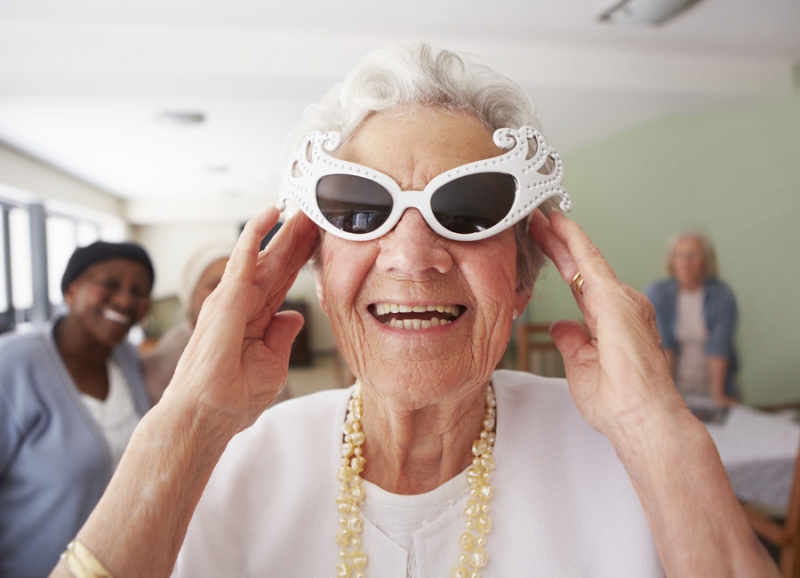We’ve covered a great variety of health topics on our blog—most of which focus on encouraging older adults toward an active lifestyle to support their social, physical, and emotional wellbeing. This month, in recognition of National Men’s Health Month, we want to focus on a topic important to men’s emotional and mental health: depression in men. To be clear, depression is not a part of the normal aging process. Depression in older adult men can be overlooked when other health conditions are present, such as dementia. This makes it all the more important to understand and be able to recognize depression in older adult men.
The experience of depression can be quite different for men compared to women. It’s important for loved ones to be able to understand a man’s unique experience of depression so they can best provide support for coping with this serious mental health condition.
Who Suffers from Depression?
Of all the mood disorders, depression is the most common, afflicting over 21 million Americans from all ethnic groups, ages, and backgrounds each year. Annually, over six million men suffer from depression. In general, men (compared to women) have been less open about reporting symptoms of depression to a healthcare provider. In recent years, thanks to high profile stories of men speaking openly about their mental health and a movement to de-stigmatize conditions like depression, men have been more forthcoming about their struggles with depression.
There are still generational differences around mental health, including depression. Some older adult men may not be willing to admit to feeling depressed—they may look for a “logical reason” for what they are feeling, and become despondent and/or angry when they can’t pinpoint that reason to explain their depressed mood.
A Man’s Experience of Depression
Ups and downs in mood are a natural part of being human. Hour to hour, day to day, our emotions can shift based on events in our lives and our perceptions of these events. Clinical depression in men reflects a disturbance in mood and emotion over a period of time, interfering with a person’s usual daily routine and their ability to derive enjoyment from living as they usually do.
If you are concerned that a man in your life may be struggling with depression, ask yourself if there is evidence of the following signs/symptoms:
- Uncontrolled anger or violent behavior that is uncharacteristic of them
- Increased use of alcohol / tobacco
- Reckless behavior
- Changes in usual eating & sleeping habits that persists for 2+ weeks
- Frequent complaints of headaches, physical pain, or similar
- Feeling unrelenting pressure, even when simple requests are made
- Changes in how they view themselves and their life
- Decreased desire for social interaction, relationships, and intimacy
- Not able to experience joy in things that usually hold meaning/interest for them
What Can Trigger Depression in Older Adult Men?
For older adult men, depression can be triggered by situations that create feelings of helplessness, anger or stress, such as:
- Overwhelming change in responsibility at work or home, including caretaker duties
- Retirement, particularly if there isn’t a plan for it
- Feeling dissatisfied with their accomplishments in life
- Unanticipated changes in relationships (loss, illness, broken ties)
- Chronic illness, injury, disability that alters lifestyle & independence
- Changes in memory / other areas of cognitive function
- Financial problems
Remember: There isn’t a single cause of depression; sometimes, it can afflict a man for no apparent reason. This is why addressing depression must consider biological (genetic factors), psychological, and social factors as well as things like lifestyle choices, relationships, and coping skills.
What Can Older Adult Men Do to Protect Against Depression?
Men can do many things to help protect against risk of depression. The following healthy living tips are a good start:
Get Cuddly. Hugs, a gentle hand on the back, and other affectionate touch is shown to reduce stress, and lower heart rate and blood pressure. It also increases the hormone oxytocin, which plays a role in our desire for social and romantic bonding. Touch, ideally, is between two people who care for one another’s well being, but older adults can also benefit from cuddling a dog—a live animal or a robotic therapy pet!
Stay Social. Older adults need in person social connections to support their emotional wellbeing. People who maintain social ties—over a cup of coffee, lunch, dinner, or a game of cards—have lower risk for depression and other health problems, tend to live longer, and report having happier lives, overall.
Eat a Brain Smart Diet. The food you eat influences the production of brain chemicals (neurotransmitters) that play a role in regulating emotional experience and mood. A brain smart diet includes primarily plant0based whole foods, lean cuts of poultry and fish, and, less frequently beef, as well as a variety of nutrient-rich fruits and vegetables.
Mood Lifting Movement. There’s a significant link between exercise and positive mood. You don’t need to have a racing heart rate to get the mood boosting effects of exercise. You can benefit from taking a stroll through your neighborhood, dancing in your living room, splashing around in the pool, plating catch, or even doing yoga in a chair. If you can get a partner to join you, even better: You’ll reap the benefits of social connection while engaged in mood lifting movement!
In older adults, what looks like depression could be another underlying health condition—such as sleep deprivation or dementia. And, some health conditions common to older adults can mask a depressive disorder. If you suspect that you, or a loved one, is experiencing depression, please speak to a healthcare provider right away.
Resources
Anxiety and Depression Association of America. “Men’s Mental Health”
Mental Health America. “Depression”
Murray, M.T. and Pizzorno, J. “Depression.” Cited in Encyclopedia of Natural Medicine (3rd Ed.) 2012. New York, NY: Atria Paperback: Simon & Schuster, Inc. p. 497-498.









